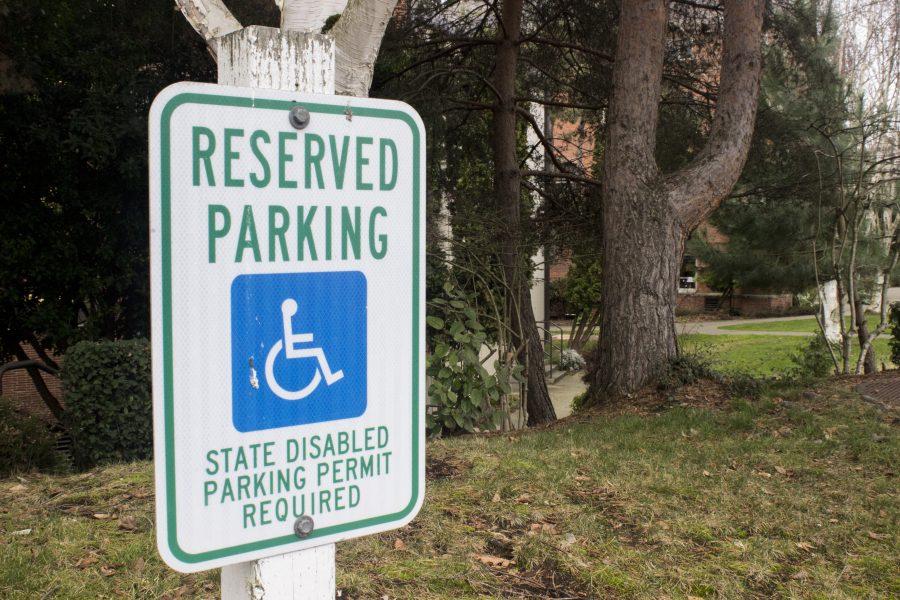Why I am not grateful to be able-bodied
Gratefulness in and of itself is not inherently insensitive. It is like an essay outline, explicitly stating what one is going to write about, but it does not give the professor the necessary context of the writers’ main arguments.
By publicly stating what one is grateful for, we give broad statements without the necessary context. Context and intention are what define a writer’s argument in their essay; they give the essay meaning. Similarly, gratefulness needs elaboration.
More often than not, people will say something they are grateful for and not consider what they are specifically grateful for. They will not realize what their generalized statements of gratefulness could imply.
For example, something as seemingly innocent as “I’m grateful for being able-bodied” can easily be read as “I’m grateful that I am not disabled.”
By singling a specific group out, in this case those who are disabled, it makes one wonder why they chose to specifically point out that group.
Of course everyone is grateful that they are able-bodied, but that is not something you need to specifically state to be reminded of your own superiority.
The phrase able-bodied is often used as a way to sugar-coat discrimination against those who are disabled. Though this is not always the intention, it remains a convenient way to allude to not being capable.
These statements demonstrate a lack of recognition towards the struggles the disabled community face daily, and also how those who are disabled are able to overcome these struggles.
Without recognizing a person’s privilege (the specific advantages one has over another person – in this case, the fact that they are able-bodied in the first place), the acknowledgement of one’s able-bodiedness and their gratefulness for this fact comes off as a cheap laugh in the face of those who aren’t.
If someone is going to say they are grateful for being able-bodied, they need to also explicitly state why. They need to acknowledge that the disabled community does go through challenges every day, and in some ways do have it harder than those who are able-bodied.
Just because those who are disabled may face challenges does not mean that they cannot live happy, healthy lives.
As an individual with disabilities, I receive the opposite message when someone says that they are grateful they are able-bodied without acknowledging their privilege.
When asked if I’m grateful that I do not have a more debilitating disability, I will likely tell you no. I am not.
I have cerebral palsy. It is a part of who I am. I must recognize my advantages in life (for example, not having to use a wheelchair), but at the same time, I realize that having a disability is not something I can change.
I was born with it, and I will die with it. I am proud of myself as a disabled individual and I do what I can to overcome and adapt to challenges.
By saying that I am glad I don’t have it worse off, I would be suggesting that someone’s life is somehow worth less than mine. I would be suggesting to others that my existence is in of itself an unfortunate thing; that because I am disabled I cannot be thankful for my disability and the lessons that it has taught me.
Without acknowledging one’s privilege and opening a discussion around the everyday life of those who are disabled, “grateful for being able-bodied” doesn’t make me feel respected.
It makes me feel isolated and misunderstood.
The next time you make a post about what you are grateful for, consider who you are targeting with your words, and acknowledging your privilege in being able to say these things so that everyone can be respected.


















































































Who • Jan 23, 2019 at 9:56 am
If one says, “I am grateful for being able-bodied”, that’s usually exactly because they recognize the privilege in it. They are acknowledging it’s not something everyone has. It is acknowledging that the disabled community goes through challenges every day, and have it harder than those who are able-bodied. Otherwise why would they being saying they were grateful? No, it doesn’t mean you can’t have happy lives, but it does add challenges most people would rather avoid and not everyone could handle.
It’s hard not to interpret what you’ve said above as “people who say they are grateful for an able-body are implying people who are disabled are less than”. That seems unfair. You imply you’re grateful for not having to use a wheelchair – that doesn’t mean you think people who do are less than somehow. They are just dealing with something harder, that you are grateful you’re not dealing with.
I hope you aren’t interpreting other’s appreciation of the difficulties you face as a personal insult. It’s quite the opposite – as an able-bodied person I am impressed with most members of the disabled community I’ve known. Life is hard enough as an able-bodied person. It takes a whole other level of strength to shoulder additional bodily challenges and I’m grateful not to bear it myself. I don’t see you as less than, I see you as stronger than in many, many ways.